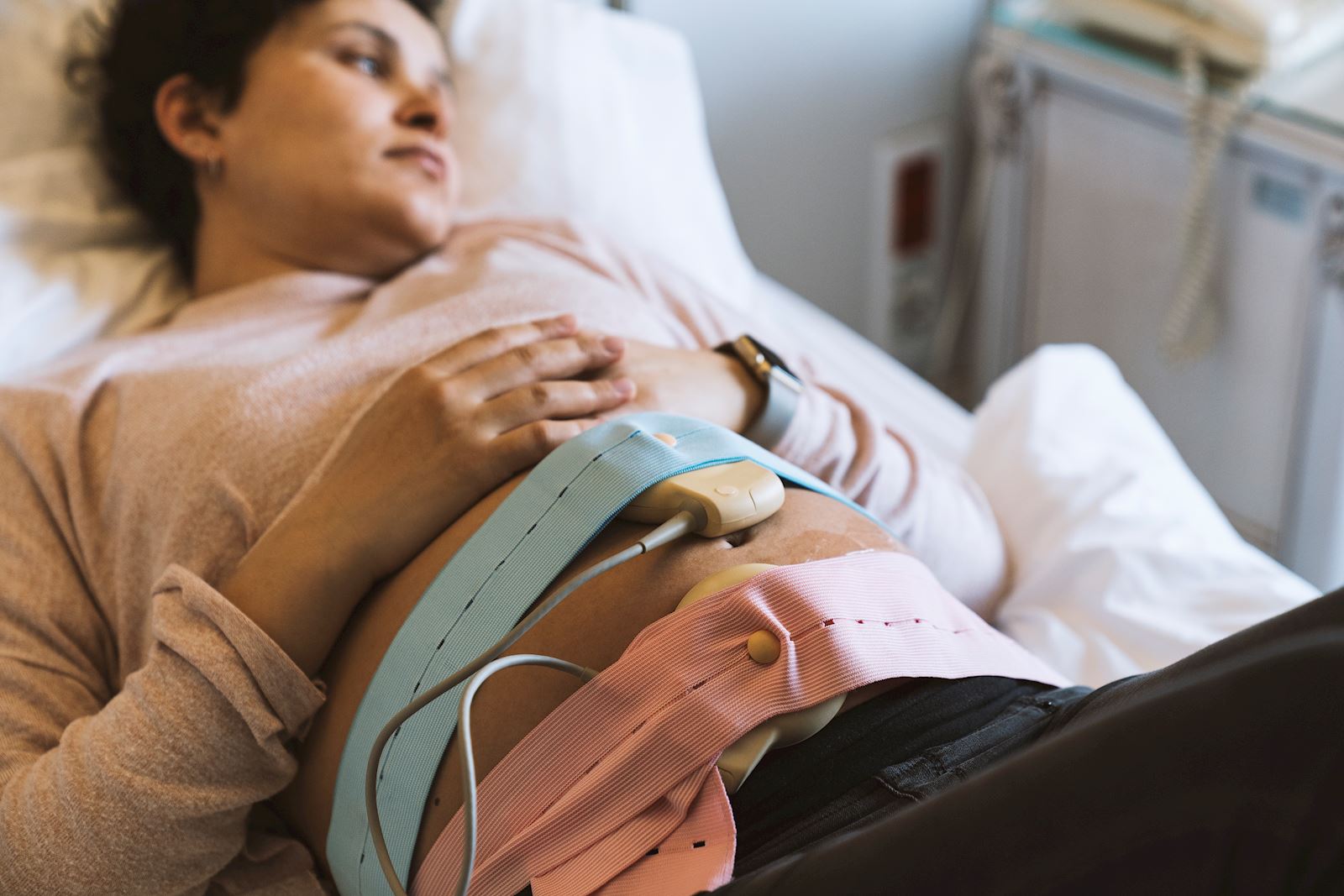As you near the end of your pregnancy, your provider will want to check baby's health. Dr. Therese Tran shares what to expect during your nonstress test, and why they are so important.
Posted
by Featured Provider Therese Tran on Thursday, December 29, 2022

A nonstress test (NST) is a noninvasive test performed in the third trimester that evaluates how baby’s heart rate pattern responds to its own movements and contractions. NST’s are recommended for certain high risk maternal or fetal conditions that may affect baby’s wellbeing and may begin between 32-37 weeks occurring once or twice a week until delivery.
What Can I Expect During the NST?
Prior to the NST, ensure you have eaten and are well hydrated so baby will be awake and active. Empty your bladder before the test, as it can 20 to 40 minutes or longer.
During the test, you will recline in a chair while a fetal heart rate monitor and contraction monitor are placed externally on the abdomen. If baby seems sleepy, the nurse may give you a little buzz from an acoustic stimulator, which emits a small sound and vibration to wake up the sleepy baby.
After your procedure, your provider will review your results and discuss them with you. If you have any questions or concerns for your provider, they may be addressed at this time.
Sounds Easy, but What Do My Results Mean?
Reactive NST
A reactive NST is a test that shows at least two heart rate accelerations and an increase of 15 beats per minute above baseline for at least 15 seconds each. This indicates a healthy, happy, and well-oxygenated baby.
Nonreactive NST
A nonreactive NST occurs when baby’s heart rate stays near its baseline throughout the duration of the test — which is not always a negative thing. Babies will have nap times where they don’t sleep or move much for a few hours at various times during the day. Sometimes, this can occur during the NST.
Some medications that make us sleepy, can also make baby sleepy too. If baby appears sleepy, the nurse will encourage you to drink cold water, change positions, and use the fetal acoustic stimulator to try to wake baby up. If baby wakes up and starts moving, this is reassuring, and no additional testing is needed. If the test continues to be non-reactive after attempts to wake baby up, a biophysical profile would be performed.
A biophysical profile (BPP) is an advanced test for fetal well-being using ultrasound. It measures amniotic fluid levels, looks for fetal breathing and movement, and a tone over a 30-minute period — with two points given for each measure. A perfect score of 8/8 indicates a healthy baby, while a BPP score of <4 is suggestive of fetal compromise and adverse fetal outcome.
If your NST is nonreactive and BPP is equivocal or concerning, you may be directed to proceed to the hospital for prolonged monitoring, admission, or repeated testing. In rare cases, early delivery may be indicated.
When Is an NST Recommended?
There are other times when an NST would be recommended, including but not limited to the following:
- Advanced maternal age (>37 years old at due date)
- IVF pregnancy
- Gestational, Type 1, or Type 2 diabetes
- Maternal obesity with BMI >35
- Chronic or gestational hypertension
- Preeclampsia
- Twin pregnancies
- Fetal aneuploidy or anomalies
- Previous stillborn pregnancy
- Pregnancy at >41 weeks gestation
- Decreased fetal movement
- Abdominal trauma from falls and motor vehicle accidents
- Maternal substance abuse
No matter what stage you are in your pregnancy, The Iowa Clinic OB/GYN providers are here for it all. Visit our website or call 515.875.9290 to learn more.
Meet This Featured Provider

Learn More About:
Obstetrics & Gynecology,
Women's Center
Therese Tran, DO joined The Iowa Clinic in 2009 because she wanted to join a physician owned, multispecialty clinic that collectively makes decisions to improve patient care. Dr. Tran chose OB/GYN because of her passion for women’s health and taking care of women through all phases of life.... Read More
Accepting New Patients
Other Obstetrics & Gynecology
Tags
- obstetrics & gynecology
All information offered on The Iowa Clinic website is intended to serve as general educational information only. Any content, product or service is not intended to be a substitute for professional medical advice, diagnosis or treatment. If you believe you have a medical issue, always seek the personalized advice of your physician or qualified healthcare provider.
The Iowa Clinic may provide links to outside sources for additional resources or information and is in no way responsible for the information provided by other organizations or sources. © The Iowa Clinic, 2024